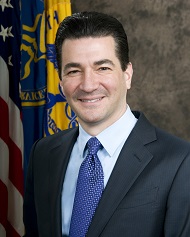A Greek member of the EU Parliament has said that the use of heat-not-burn (HNB) products should not be seen as safer than smoking or vaping.
‘The IQOS device, which came out in 2014 and which heats solid tobacco, is no less harmful to cells than smoking and vaping, according to scientists, who said that a new study is a further indication that the new devices – which are now being used in 41 countries – are no safer,’ Lampros Fountoulis said as a preamble to two questions put to the Commission.
‘The scientists, who will continue their research into smoke heating appliances, emphasised that “it is already known that the failure of two types of lung cells can destroy the lung tissue and lead to fatal diseases, such as chronic obstructive pulmonary disease, lung cancer and pneumonia, and increase the risk of asthma, so these devices should not be considered a safer option*”.’
Fountoulis asked the Commission if it could say:
(1) ‘What steps will it take to establish homogeneous arrangements in member states?
(2) ‘How will it control tobacco products and other related products in order to protect public health, given that more and more young people are addicted to nicotine as a result of this trend?’
The Commission is due to answer in writing.
*https://www.in.gr/2019/02/11/health/body/oi-syskeyes-thermansis-kapnou-eksisou-epivlaveis-gia-ton-anthropo-kapnisma-kai-atmisma/?fbclid=IwAR1-VUiRQ2-ZIIDUQjYkzMc8c_S1nkuqC4CnU3reNKqpi8w31owvR5TIdv; and http://scinews.eu/ta-nea-tis-epistimis/1735-oi-syskeves-thermansis-kapnoy-eksisou-epivlaveis-gia-ton-anthropo-me-to-kapnisma-kai-to-atmisma.










